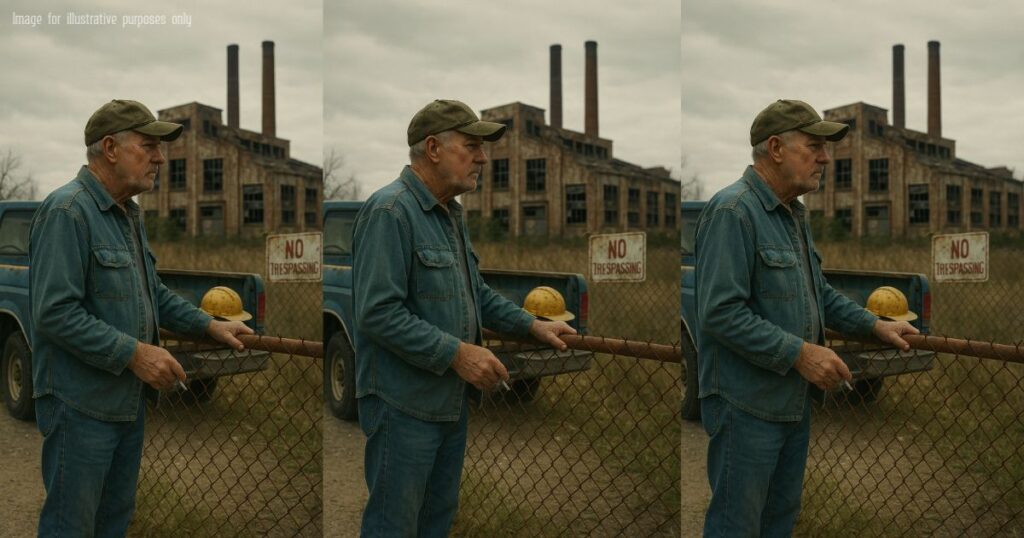He was standing near Line B—the old pulper system. Half the roof was caved in, and vines grew through the concrete. But the machines were still there. Rusted, but proud. Like soldiers in a forgotten war.
The man turned.
Gray beard. Long coat. Eyes like someone who’d seen too much and not enough. And in that strange, heart-kicking way life works, I recognized him.
“Frankie?”
He squinted. Then the smallest crack of a smile.
“Jesus. Pete Monroe? You still above ground?”
I laughed. “Barely.”
Frankie Valdez. Used to run the clamp truck. Retired early after a back injury—fell off a loading ramp hauling too many pallets alone because Miguel called in sick. That was ’93. Word was he’d moved south. I never expected to see him again. Least of all here, among the ruins.
“What the hell are you doing in this graveyard?” I asked.
He shrugged. “Same as you, I guess. Couldn’t stay away.”
We stood in silence for a while, just breathing in the air. Still smelled like oil and wood rot. Still reminded me of Monday mornings and bad coffee.
Frankie pulled out a hip flask, offered it. “To the ghosts.”
I took a swig. It burned like honesty.
We wandered deeper, past the old locker room. My name was still scratched into locker #117. A faded sticker: “UNION STRONG.” Someone had drawn a middle finger beneath it in permanent marker. Probably Danny from night shift.
“You remember the shutdown day?” Frankie asked.
“Like a funeral.”
He nodded. “I was already out by then. But I heard you said something. In the meeting.”
I looked away. “Doesn’t matter now.”
“No,” he said, “that’s where you’re wrong.”
He sat on an overturned spool of copper wire, looked up at the beams like they still held the sky.
“You said something, Pete. Most of us never did. Hell, I didn’t. I just got hurt and left and hoped my pension wouldn’t evaporate.”
I didn’t know what to say. So I didn’t.
As the sun lowered behind the smokestacks, we wandered past the foreman’s office—long stripped of furniture. On the wall, carved deep with a box cutter, were five words:
“We gave more than they did.”
Frankie touched it gently, like a gravestone.
“You know what bothers me?” he said. “It’s not that they shut it down. It’s that they never came back. Not once. No thank-you. No monument. Just… gone.”
I nodded. “They wanted us quiet. We were just gears in the system.”
“Yeah,” he said. “But we were the ones that made it spin.”
We climbed to the catwalk that overlooked the entire floor. It was rusted, groaning under our weight. I thought of all the times I’d stood there, looking down at the men below. Watching the lines run smooth or seize up in chaos.
Frankie leaned on the rail. “My grandson thinks I did nothing special. Just lifted stuff. Hauled stuff. Pressed buttons.”
I looked at him. “You built a life out of it.”
He smiled. “Damn right I did. Paid for my daughter’s braces with that clamp truck.”
We both laughed, but it wasn’t funny. It was sacred.
As we left, the wind kicked up. A swirl of dust rose through the broken windows, catching the last rays of light. It looked like smoke. For a second, I could almost believe the mill was breathing again.
We paused at the entrance.
Frankie clapped my shoulder. “I’m glad you said something back then. It mattered.”
“Too little, too late.”
“No,” he said. “You gave us a voice. Even if it was the last shift.”


